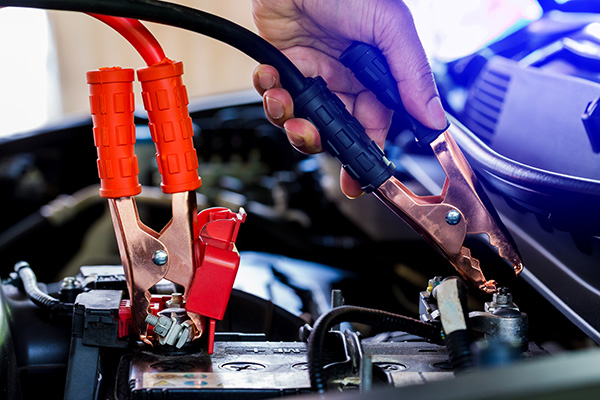
Few things are as frustrating as getting in your car, turning the key, and hearing nothing but silence. If your car battery keeps dying, this is a common issue that many drivers face. But why does it happen? What’s causing your battery to lose power repeatedly? The truth is, there are several potential reasons why your car battery might be draining, and identifying the root cause can save you from constantly needing a jump start or a new battery.
Leaving Lights or Electronics On
One of the most common reasons for a dead car battery is leaving lights or electronics on after the engine is turned off. This can happen with interior lights, headlights, or even electronic accessories like phone chargers. Many newer cars are designed to automatically shut these off to prevent battery drain, but it’s still easy to accidentally leave something on, especially if your car doesn’t have this feature.
Before leaving your vehicle, it’s a good idea to double-check that all lights and electronics are turned off. Even a small interior light can drain the battery if left on overnight.
Parasitic Battery Drain
Did you know that even when your car is off, some systems still draw power from the battery? This is called a parasitic drain, and it’s normal for things like your clock, alarm system, and computer to pull a small amount of energy. However, if there’s an electrical issue or faulty component, the drain can become excessive and kill your battery over time.
If you notice that your battery is dying without any apparent cause, a parasitic drain could be the culprit. A technician can diagnose the issue by checking for electrical problems, bad wiring, or malfunctioning components that are pulling more power than they should.
Frequent Short Trips
Do you mostly take short trips around town? While this might seem harmless, it can actually prevent your battery from fully recharging. Car batteries are designed to recharge while you drive, but if your trips are too short, the alternator doesn’t have enough time to fully replenish the energy used to start the car.
Over time, this can leave your battery with less and less power, eventually causing it to die. If possible, try to take your car on longer drives occasionally to give the battery a chance to recharge fully.
Extreme Weather Conditions
Both hot and cold weather can be tough on your car battery. In hot weather, high temperatures can cause the battery fluid to evaporate, which can lead to internal damage and reduce its ability to hold a charge. Cold weather, on the other hand, can slow down the chemical reactions inside the battery, making it harder for the battery to generate enough power to start the car.
If you live in an area with extreme temperatures, it’s important to keep an eye on your battery's health, especially during seasonal changes. Parking your car in a garage or shaded area can help protect the battery from extreme conditions.
Old or Worn-Out Battery
Car batteries don’t last forever. On average, a car battery will last between three to five years, depending on driving habits and conditions. As a battery ages, it becomes less capable of holding a charge, which can lead to it dying more frequently.
If your battery is old, it might be time for a replacement. You can check the age of your battery by looking at the date code stamped on it. If it’s nearing the end of its lifespan, replacing it before it fails completely can save you from the hassle of being stranded.
Faulty Alternator
Your car’s alternator is responsible for keeping the battery charged while you’re driving. If the alternator isn’t working properly, it won’t provide enough power to recharge the battery, leading to frequent dead batteries. Other signs of a failing alternator include dimming headlights, strange noises, or warning lights on your dashboard.
If you suspect your alternator might be to blame, it’s important to get it checked as soon as possible. A faulty alternator not only affects the battery but can also cause other electrical components in your car to malfunction.
Corroded or Loose Battery Connections
Sometimes, the issue isn’t the battery itself but the connections to it. Corroded or loose battery terminals can prevent your battery from charging properly. You might notice that your car is slow to start or that you’re having trouble keeping the battery charged, even after replacing it.
Inspecting your battery terminals for corrosion and ensuring that all connections are tight can help prevent this issue. Cleaning corroded terminals is a simple task, but if you’re unsure how to do it, a professional can help.
Don’t wait until your battery leaves you stuck! Visit B&C Auto Center to get your battery inspected and serviced. We’ll diagnose the issue and provide the maintenance you need.